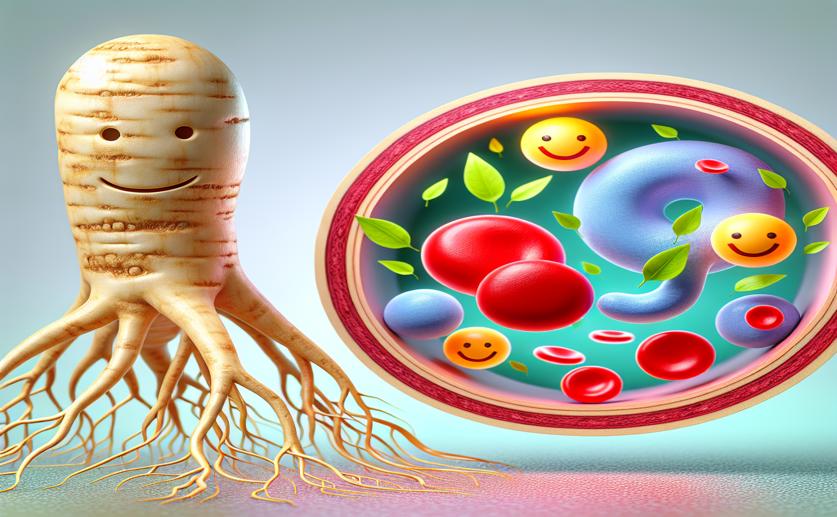
Ginseng Blend Slows Aging in Blood Vessels by Protecting Key Cells
Greg Howard
1st March, 2024

Image Source: Natural Science News, 2024
Key Findings
- In a Chinese study, Ginseng-Sanqi-Chuanxiong (GSC) extract improved blood vessel health in aging mice
- GSC enhanced the repair abilities of stem cells that rejuvenate blood vessels
- The herbal extract reduced aging-related gene activity, suggesting a potential to slow vascular aging
References
Main Study
1) Ginseng-Sanqi-Chuanxiong (GSC) extracts attenuate d-galactose-induced vascular aging in mice via inhibition of endothelial progenitor cells senescence.
Published 29th February, 2024
https://doi.org/10.1016/j.heliyon.2024.e25253
Related Studies
2) Oxidative stress and epigenetics in ocular vascular aging: an updated review.
3) Smooth muscle mineralocorticoid receptor as an epigenetic regulator of vascular ageing.
4) Gut microbial evidence chain in high-salt diet exacerbates intestinal aging process.



 25th January, 2024 | David Palenski
25th January, 2024 | David Palenski